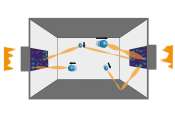Uncovering universal physics in the dynamics of a quantum system
New experiments using one-dimensional gases of ultra-cold atoms reveal a universality in how quantum systems composed of many particles change over time following a large influx of energy that throws the system out of equilibrium. ...









